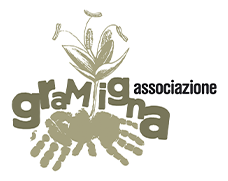EURECA
Good Practices
Permaculture garden.
Photos by Piotr Znaniecki.
Permaculture garden
Country:Main Subject:
Description:
Permaculture is harmonious and sustainable cultivation - a place that uses holistic, natural principles to design, create and maintain a plant ecosystem. Permaculture, a shortened name from permanent culture (sustainable cultivation), is a holistic and comprehensive design philosophy that aims to maintain sustainable cultivation that reflects the natural patterns and sustainable processes found in nature.
The main principles of a permaculture garden include:
Vegetation diversity: A permaculture garden uses a diversity of plant species, which promotes a natural balance in the ecosystem. The combination of plants with different functions and properties strengthens the garden's resistance to pests and disease.
Water conservation: A permaculture garden is designed with efficient water use in mind. The use of water retention techniques, such as mulching with straw or leaves, creates conditions for the collection and retention of moisture in the soil.
Soil maintenance: Permaculture provides healthy soil as a key element of a sustainable garden. The use of natural fertilisers, composting, and the avoidance of strenuous practices such as kneading or hauling away biomass, contributes to the long-term maintenance of nutrient-rich and well-structured soil.
Integrated farming: permaculture promotes sustainable farming methods, such as planting crops that work together and form mutually beneficial relationships. This approach minimises the need for artificial interventions and supports natural growth processes.
Protection of local biodiversity: A permaculture garden supports local biodiversity by attracting a variety of plant, insect and animal species. This promotes the maintenance of the natural balance of the ecosystem.
Education and community: permaculture gardens often have an educational function, promoting the principles of healthy living and encouraging community participation. Community gardens can serve as a place to share knowledge, skills and resources.
By operating according to permaculture principles, gardeners not only benefit from their crops, but also benefit the environment and the local community.
Permaculture crops can largely meet their own food needs, surpluses can be sold and provide additional income. In addition to this, agro-tourism farms are often set up next to permaculture gardens giving the hosts income from renting out the premises, bed and breakfast, and paid educational workshops on organic farming, vegetable and fruit processing, herb harvesting and drying, herbal medicine, natural cosmetics, handicrafts, as well as nature excursions and other additional activities that can provide a livelihood for permaculture farm owners.
One of many permaculture farms in Poland is run by permaculture author, educator and permaculture expert Monika Podsiadła in the village of Podlodek in the minicipality of Michów, Lubelskie Voivodeship (eastern Poland). Any person, after appropriate preparation and acquisition of knowledge, can start their own permaculture garden without much trouble and investment, even in a small garden or allotment in the city, or even more so in the countryside.
Reference links:
https://permakultura.com.pl/
https://mapa.permakultura.edu.pl/
https://www.permaculturenews.org/what-is-permaculture/
SDG direct/ indirect short justification:
Direct SGDs:
Goal 2. Zero hunger.
End hunger, achieve food security and improved nutrition and promote sustainable agriculture.
Justification
The activity meets Target 2.3 and 2.4.
Target 2.3. By 2030, double the agricultural productivity and incomes of small-scale food producers, in particular women, indigenous peoples, family farmers, pastoralists and fishers, including through secure and equal access to land, other productive resources and inputs, knowledge, financial services, markets and opportunities for value addition and non-farm employment
Target 2.4. By 2030, ensure sustainable food production systems and implement resilient agricultural practices that increase productivity and production, that help maintain ecosystems, that strengthen capacity for adaptation to climate change, extreme weather, drought, flooding and other disasters and that progressively improve land and soil quality
Keywords:
City:
Location:
Questions:
- What is permaculture?
- What principles are applied in a permaculture garden?
- What non-agricultural functions can a permaculture farm perform?
Authors:
Piotr Znaniecki
Fundacja SocLab




